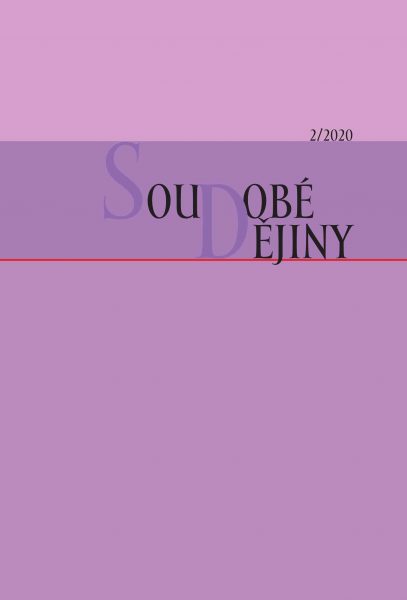Podoby a meze společenské kritiky v Titově Slovinsku
Forms and limits of social criticism in Tito’s Slovenia
Author(s): Michal JaníčkoSubject(s): History, History of ideas, Political history, Recent History (1900 till today), Post-War period (1950 - 1989), History of Communism, Book-Review
Published by: AV ČR - Akademie věd České republiky - Ústav pro soudobé dějiny
Keywords: Slovenia;Yugoslavia;social criticism;late socialism;intellectuals
Summary/Abstract: The book titled "(Self)control of intellect: Social criticism in late socialist Slovenia" (Ljubljana: Modrijan, 2019) written by Jure Ramšak, a younger generation Slovenian historian, introduces social critical thinking in Slovenia in the 1970s. The reviewer describes the situation in Yugoslavia, and particularly in Slovenia, at that time, and draws attention to some features shared with the so-called normalization in Czechoslovakia, which was being implemented in those days. As a matter of fact, the regimes in both countries were strengthened and social conflicts were weakened, but there was no connection with dissidents in Slovenia and repressions there were considerably milder. He also introduces various small groups of nonconformist intellectuals and types of their social criticism according to Ramšak: they were nationalistic “critics of socialist humanism”(labelled as “anarcholiberals”), academic sociologists, neo-Marxists produced by left-wing students’ movement (including philosopher Slavoj Žižek), and civic democratic or Catholic intellectuals the key representative of whom was Edvard Kocbek (1904–1981), a writer and ex-guerilla fighter. Slovenia’s political leadership was trying to eliminate criticism going beyond set limits by administrative sanctions; court trials and prison terms were exceptional. According to the reviewer, the author has presented an exhaustive account of the critical thinking in Slovenia during the period in question and drawn adequate conclusions without any effort to look for sensations. He has thus covered a hitherto overlooked and not very rewarding topic, and he has probably exploited it to the maximum extent possible.
Journal: Soudobé Dějiny
- Issue Year: XXVII/2020
- Issue No: 2
- Page Range: 408-414
- Page Count: 7
- Language: Czech

